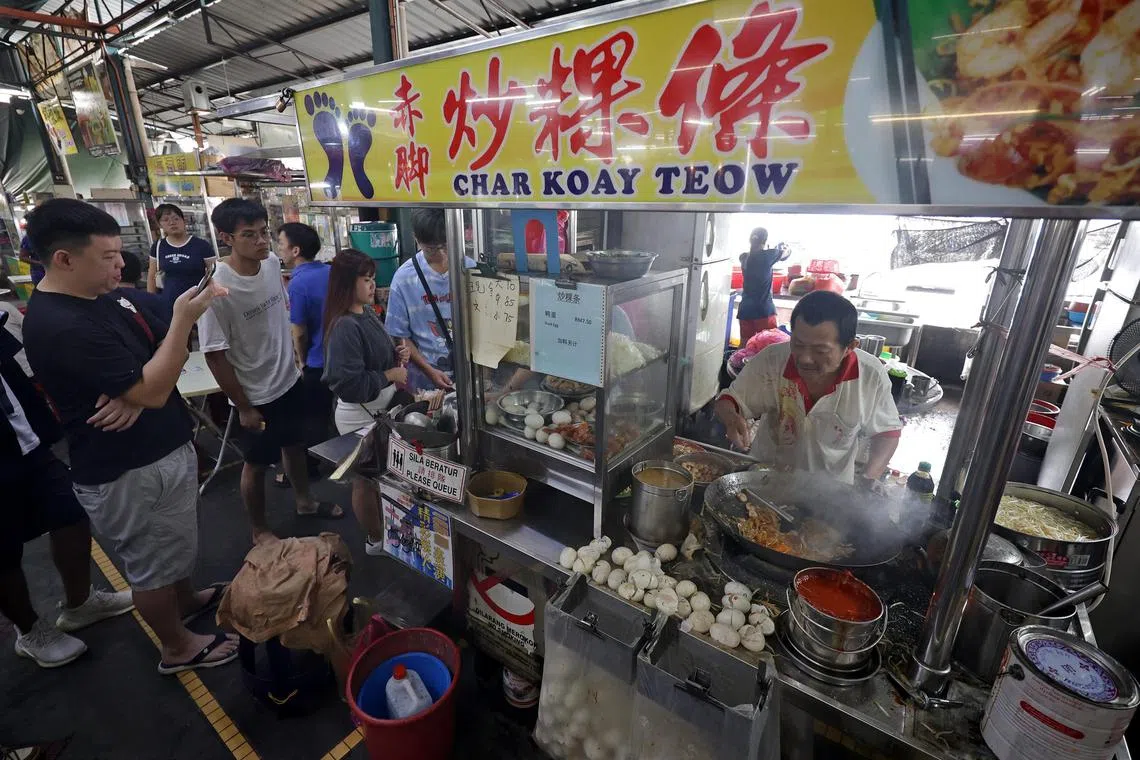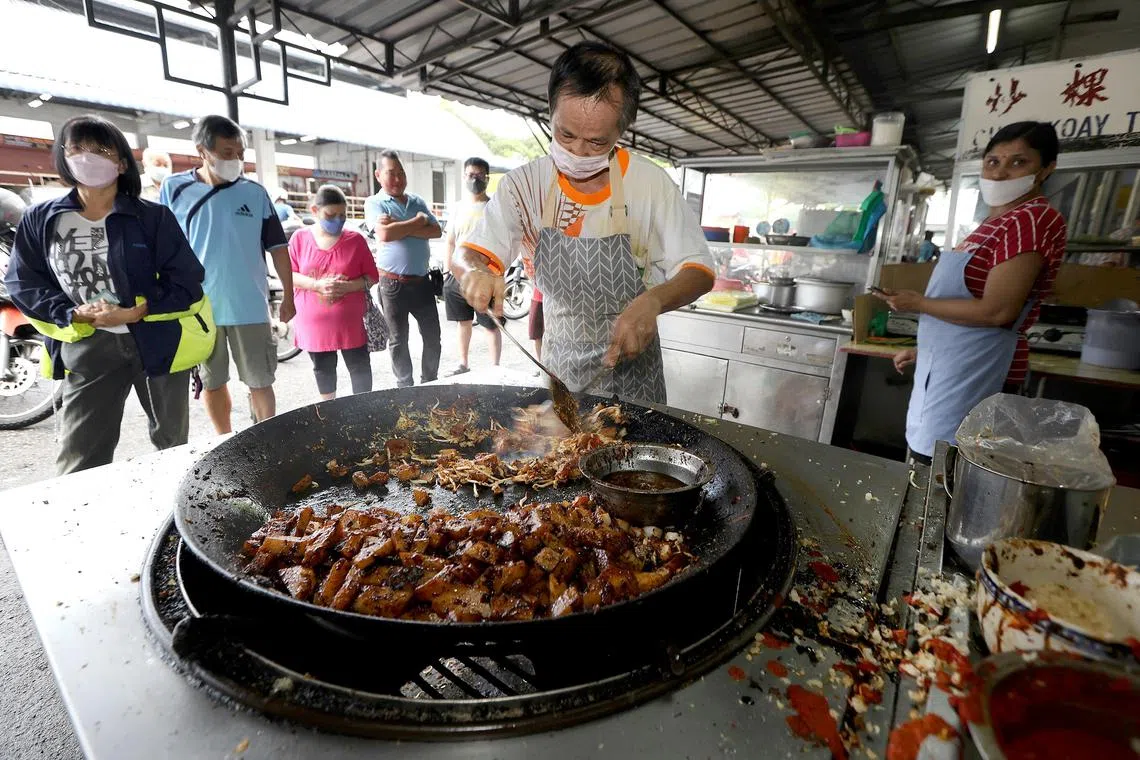No foreigners will be allowed to cook char kway teow, Penang says in proposed widening of hawker ban
Sign up now: Get ST's newsletters delivered to your inbox

The policy applies to 13 types of local street food in Penang, including char kway teow.
PHOTO: THE STAR/ASIA NEWS NETWORK
Follow topic:
KUALA LUMPUR – Penang is planning to expand its ban on foreigners cooking local fare at hawker stalls and foodcourts, in a bid to preserve the northern Malaysian state’s status as a street food haven.
Initially enforced in 2016 at state-owned centres and markets, the ban drew mixed responses from the industry.
Now, a planned expansion to cover all hawkers across the island could come on the back of lobbying by government backbenchers for more rigorous enforcement.
“The initiative is important to preserve the authenticity of our Penang food,” Penang state executive councillor for local government, town and country planning Jason H’ng told The Straits Times.
Besides ensuring the quality of the dishes, the proposed move can also reduce dependency on foreign labour, said Mr H’ng.
“The extension of the ban can create more job opportunities for locals and reduce our dependence on migrant workers,” said Mr H’ng, who is in charge of local government affairs.
On July 15, a member of the City Council of Penang Island, Ms Tan Soo Siang, announced the proposed widening of the ban to cover privately owned coffee shops and hawker centres.
Under the current practice, the council has only issued a warning letter to violators from the private sector since 2016, she revealed. A total of 17 hawkers from government-owned centres had their licences revoked as at January 2018.
“The council is studying the by-laws to take action against the local hawkers who hire foreign cooks in the private coffee shops,” Ms Tan was quoted as saying by Chinese news portal Oriental Daily News.
Penang state assemblymen at the state Legislative Assembly in May called for more aggressive enforcement against local hawkers who hire foreign workers to be cooks at hawker stalls.
The proposed widening of the ban will be discussed at an upcoming meeting of the City Council of Penang Island, with enforcement expected shortly after, said Mr H’ng, adding that this could happen by September. He also acknowledged that the ban could be extended to Seberang Perai in mainland Penang in the future.
The policy applies to 13 types of local street food, namely nasi lemak, assam laksa, pasembor (Indian rojak), mee sotong (squid), char kway teow, kway teow soup, prawn mee, curry mee, won ton mee, loh bak (five-spice meat rolls), chee cheong fun, char kway kak (fried rice cake) and oyster omelette.

The proposed expansion of the ban is to make sure foreigners cannot cook local fare at privately owned coffee shops and hawker centres too.
PHOTO: THE STAR/ASIA NEWS NETWORK
The plan to ban foreign cooks is welcomed as it addresses the concerns of customers who have noticed a decline in the quality of local cuisine, said Penang Petty Traders Association president Ooi Thean Huat.
“Hawkers receive licences with the understanding that they or their family members will manage the cooking. We have observed that the cleanliness standards are higher when (local) hawkers themselves are directly involved in the operations,” Mr Ooi told ST.
On the other hand, some businesses are not happy with the idea.
Island Park Kopitiam owner Tan Boon Keat opposes the proposed ban on foreign cooks, citing the difficulty in finding local staff for cooking roles.
“While I understand the government’s intention is to preserve the authenticity of local cuisine, this policy is not helpful. It’s counterproductive if we are the only state enforcing such a rule while others do not. The government needs to allow us more time to recruit local workers,” said Mr Tan, who has over two decades of experience in running cafes and hawker stalls in Penang.
Mr Mohamad Ibrahim, who operates a hawker stall at the popular Gurney Drive Hawker Centre, told ST that the proposed ban on foreign cooks would not significantly affect the centre, as stall owners themselves typically handle the cooking, with foreign workers primarily assisting in tasks like dishwashing.
“However, there are days when these workers step in to help with cooking. If the ban strictly prohibits foreign workers from these duties, it could create operational difficulties for us hawkers,” said the 40-year-old.
In announcing the ban in 2016, then Chief Minister Lim Guan Eng said the move was to preserve the authenticity of the state’s local flavours.
He said the regulation was to maintain and ensure that the unique tastes and flavours of local food would be retained to safeguard Penang’s food heritage, and to ensure that foreigners would not take over Penang’s hawker food business.
“Most visitors would not want to come to Penang to taste food cooked by foreigners. Only when you maintain the original taste of flavours can you feel the warmth of Penang,” Mr Lim was quoted as saying by The Star.

